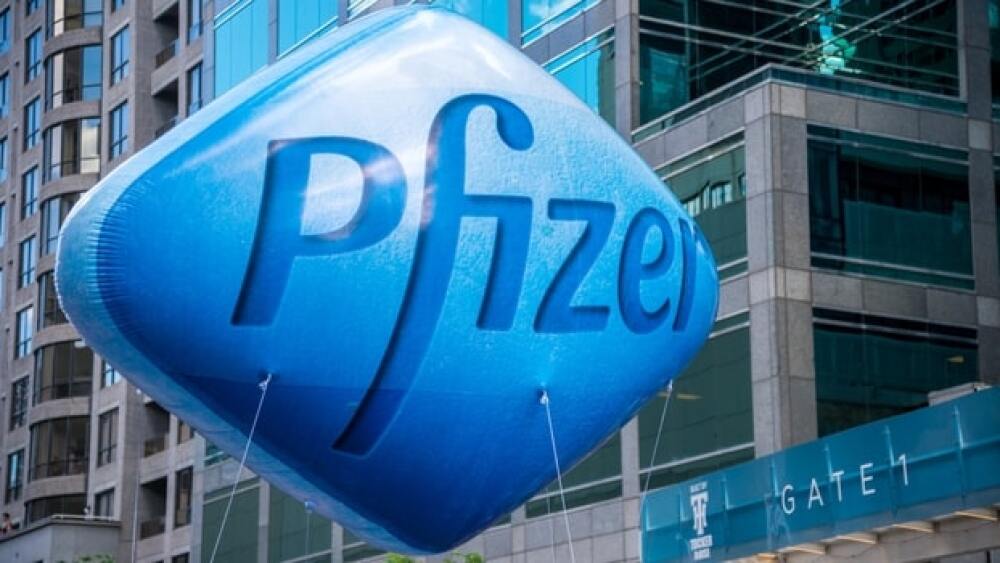Pfizer anticipates the initiative to invest up to half-a-billion dollars in small- to medium-sized companies developing clinical-stage assets aligned with Pfizer’s core areas of focus.
Marc Bruxelle/Shutterstock
The Pfizer Breakthrough Growth Initiative has invested a total of $120 million into four separate clinical-stage biotech companies. Pfizer anticipates the initiative to invest up to half-a-billion dollars in small- to medium-sized companies developing clinical-stage assets aligned with Pfizer’s core areas of focus.
The Pfizer Breakthrough Growth Initiative was first announced in June. The goal of the project is to not only provide funding for scientific research, but also allow those recipients to have access to Pfizer’s own experts in order to ensure the continuity of clinical programs that could be of potential strategic interest for the pharmaceutical giant.
So far, Pfizer has invested in Essa Pharma, Trillium Therapeutics, Vedanta Biosciences and Homology Medicines. In addition to equity investments, Pfizer’s initiative is used to strengthen collaboration through participation on company and scientific advisory boards, as well as securing certain strategic rights when it fits the company’s needs.
“Our investments in Homology, Vedanta, Trillium, and ESSA reflect our commitment to find new and creative ways to leverage Pfizer’s resources to deliver breakthroughs to patients,” Debbie Baron, head of Business Development at Pfizer said in a statement.
Based in Vancouver, Essa Pharma is focused on developing novel and proprietary therapies for the treatment of patients with prostate cancer. Pfizer invested $10 million into the company. In September, Essa received Fast Track designation from the U.S. Food and Drug Administration for EPI-7386 an investigational, highly-selective, oral, small molecule inhibitor of the N-terminal domain of the androgen receptor. EPI-7386 is currently being studied in a Phase I clinical trial in men with metastatic castration-resistant prostate cancer whose tumors have progressed on current standard-of-care therapies.
Cambridge, Mass.-based Trillium Therapeutics received $25 million from Pfizer. Trillium is also oncology focused. The company’s two clinical programs, TTI-621 and TTI-622, target CD47. TTI-622 is in a Phase Ia/Ib study in in patients with advanced relapsed or refractory lymphoma or multiple myeloma. The other asset, TTI-621 is in a Phase I study in patients with advanced relapsed or refractory hematologic malignancies. In addition to the equity investment, Jeff Settleman, chief scientific officer of Pfizer’s Oncology Research and Development Group, was added to Trillium’s scientific advisory board.
Vedanta Biosciences, also based in Cambridge, received $25 million in equity investment. Vedanta is a privately-held company focused on developing a new category of therapies for immune-mediated diseases based on rationally defined consortia of human microbiome-derived bacteria. Vedanta’s VE707 microbiome program is designed to restore healthy microbiota and prevent infection and colonization recurrence by multi-drug-resistant superbugs. Over the past year, several of its programs have entered the clinic for C. difficile, inflammatory bowel disease, food allergies and cancer immunotherapy. In addition to the investment, Pfizer’s Michael Vincent, CSO of the company’s Inflammation and Immunology Research Unit joined the company’s scientific advisory board.
Homology Medicines, based in Bedford, Mass., received the largest donation, $60 million. Homology is focused on treatments for rare genetic diseases with significant unmet medical needs. The company’s lead gene therapy asset HMI-102 is involved in a Phase I/II study for adults with phenylketonuria. HMI-102 is designed to encode the PAH gene, which is mutated in people with PKU. In connection with the investment, Pfizer’s Seng Cheng, CSO of the Rare Disease Research Unit, joined Homology’s scientific advisory board.





